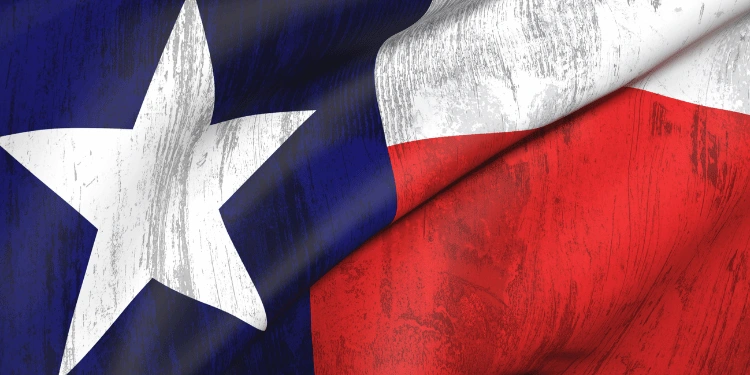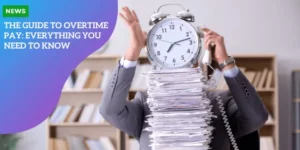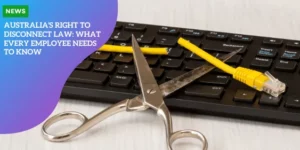Texas Woman Sues State Lottery for $83 Million Jackpot She Claims Was Wrongfully Withheld
In a case that has captured widespread attention across the United States, a Texas woman has launched a lawsuit against the state’s lottery commission, asserting that she rightfully won an $83.5 million jackpot but has not claimed her prize yet.
The legal action, filed in Montgomery County on 19 May, presents a complex intersection of consumer rights, regulatory grey areas, and the integrity of state-run gambling enterprises.
The Jackpot That Never Materialised
The plaintiff, identified in court documents only as “Jane Doe” to preserve her anonymity, alleges that she purchased a winning ticket for the “Lotto Texas” game on 17 February.
Unlike conventional purchases made in person at a licensed vendor, the ticket was acquired through a third-party courier service known as Jackpocket.
Such services allow residents to order lottery tickets via smartphone apps or websites, after which the company procures the physical ticket on the customer’s behalf.
This convenience-driven approach has gained popularity across several US states but is fraught with regulatory complications — particularly in Texas, where courier services are not legally recognised or monitored.
According to the lawsuit, Jane Doe’s experience began with excitement and anticipation.
Upon discovering that the numbers on her ticket matched the winning combination for the substantial jackpot, she naturally presumed that the next step would be to claim her multi-million-dollar prize.
However, the situation swiftly descended into a legal quagmire.
Regulatory Grey Areas and Sudden Policy Reversals
Only days after the winning numbers were announced, Texas officials declared an abrupt policy change.
The state would henceforth prohibit the purchase of lottery tickets through unregulated courier services, with the ban taking immediate effect.
The timing of this announcement has become a focal point of Jane Doe’s legal challenge.
Her lawsuit contends that the Texas Lottery Commission is attempting to apply this new regulation retroactively in order to avoid paying out her winnings. Crucially, the suit points out that, at the time of purchase and drawing, there were no explicit prohibitions against utilising such third-party services for lottery participation.
The court filings further emphasise that at no point did lottery officials declare her ticket invalid or counterfeit.
Thus, in Jane Doe’s view, the Commission’s subsequent refusal to honour the ticket amounts to an unlawful post-hoc alteration of the rules — an action she claims is both legally impermissible and ethically dubious.
Official Statements and Investigations
Texas Governor Greg Abbott entered the fray by publicly announcing that law enforcement agencies, including the renowned Texas Rangers, would be tasked with investigating the matter.
In a statement issued in February, Governor Abbott underscored the paramount importance of maintaining public trust in the state’s lottery system.
“Texans must be able to trust in our state’s lottery system and know that the lottery is conducted with integrity and lawfully,” he remarked, defending the state’s swift regulatory action and the decision to investigate the circumstances surrounding Jane Doe’s ticket.
Governor Abbott’s directive to the Texas Rangers has been interpreted by some as a signal of the state’s intent to scrutinise not only the claimant’s actions but also the wider operations of courier services operating within Texas’ borders.

Leadership Changes Amidst the Fallout
Adding to the controversy, the Texas Lottery Commission’s Executive Director, Ryan Mindell, resigned in April amidst intensifying investigations into the practices of courier services like Jackpocket.
Mindell, who had previously overseen the Commission’s operations, issued a parting statement expressing concern over the proliferation of unregulated couriers in the state.
“The proliferation of couriers in the state has raised serious concerns that the integrity, security, honesty, and fairness of lottery games is being undermined by the continued activity of courier services,” he stated.
His resignation was quickly followed by the appointment of interim Executive Director Sergio Rey, who now finds himself named as a respondent in Jane Doe’s lawsuit.
A spokesperson for the Texas Lottery Commission indicated that the matter is currently “being reviewed under the Commission’s claim validation requirements and is the subject of external investigation.”
The Commission has thus far refrained from making any further public comment on the specific merits of Jane Doe’s case, citing ongoing legal proceedings.
The Broader Debate Over Lottery Courier Services
At the heart of this dispute lies a broader debate over the legitimacy and regulation of lottery courier services in the United States.
Only a handful of states — notably New York, New Jersey, and Arkansas — have taken formal steps to regulate such entities, establishing oversight frameworks to ensure transparency and consumer protection.
In contrast, states like Texas have, until now, largely allowed these services to operate in a legal grey zone, neither explicitly authorising nor actively policing them.
This laissez-faire approach has enabled companies like Jackpocket to flourish by offering a convenient alternative to traditional in-person ticket purchases.
However, critics argue that the absence of regulation invites potential abuses, creates confusion about consumer rights, and exposes both players and the lottery system to heightened risks of fraud and legal disputes.
Supporters of courier services counter that these platforms modernise and democratise access to lottery games, particularly for individuals who may be unable to visit physical retailers due to disability, distance, or other barriers.
Jane Doe’s situation has become a prominent example testing whether states can retroactively reduce such services and, more generally, what responsibilities lottery operators have toward players using these new forms of participation.
Legal Arguments and Consumer Rights
Jane Doe’s legal representatives have characterised the Texas Lottery Commission’s actions as a clear breach of contract and a violation of fundamental consumer rights.
They argue that the Commission cannot lawfully alter the terms and conditions governing lottery participation after the fact, particularly once a winning ticket has been identified.
The lawsuit contends that by refusing to honour Jane Doe’s claim, the Commission is undermining confidence in the lottery system and setting a dangerous precedent whereby winning tickets might be invalidated on arbitrary grounds.
“Rules cannot be changed retroactively simply to avoid paying out a legitimate prize,” Jane Doe’s legal team asserted in court filings, adding that such behaviour “erodes public trust in the fairness and integrity of state-run games.”
Potential Consequences and Precedents
If successful, Jane Doe’s lawsuit could compel the Texas Lottery Commission to pay the full $83.5 million jackpot, alongside potential damages for emotional distress and legal costs.
Beyond this specific case, however, the litigation is poised to influence how state lotteries across the United States approach the regulation of third-party services.
Legal experts suggest that the case could spur additional states to introduce formal regulatory frameworks governing courier services, thereby providing greater clarity for both consumers and lottery operators.
Conversely, should the Commission prevail, it could set a precedent allowing states to retroactively impose bans or restrictions on certain methods of ticket purchase — a prospect that has alarmed consumer rights advocates.
Public Reaction and Media Attention
The case has elicited considerable media interest in the United States, with commentators divided over the legitimacy of Jane Doe’s claim.
Some have expressed sympathy for her position, portraying her as an ordinary consumer caught in a web of bureaucratic red tape and state overreach.
Others argue that her decision to use an unregulated third-party service was inherently risky and that the state’s subsequent actions, while harsh, are within its prerogative to maintain the integrity of its lottery system.
Social media platforms have been awash with debate, with hashtags related to the case trending across several states.
In the UK, where lottery games are strictly regulated by the Gambling Commission, the case has been followed with interest as an example of the challenges posed by digital innovation outpacing regulatory frameworks.
Conclusion: A Legal Battle with National Implications
Jane Doe’s lawsuit against the Texas Lottery Commission is far more than a personal quest for an elusive jackpot; it is emblematic of the legal and ethical challenges confronting gambling regulators in the digital age.
As technological innovations reshape how consumers engage with traditional games of chance, regulatory bodies face the daunting task of ensuring that their systems remain fair, transparent, and trustworthy.
Whether the Texas courts will side with Jane Doe or the state remains to be seen, but the outcome is certain to resonate well beyond Montgomery County, potentially shaping the future of lottery participation across the United States and offering important lessons for regulators worldwide.
For UK audiences, the case underscores the importance of robust regulation in safeguarding consumer interests and maintaining confidence in gambling institutions.
As new technologies emerge, the question of how best to balance innovation with integrity remains as pertinent on this side of the Atlantic as it does in Texas.






